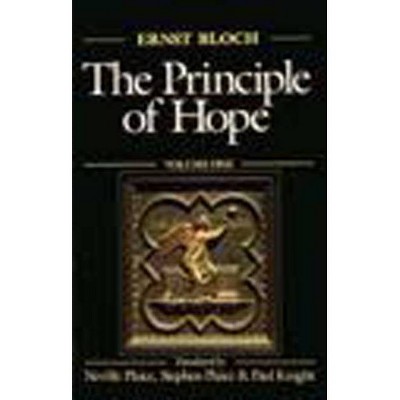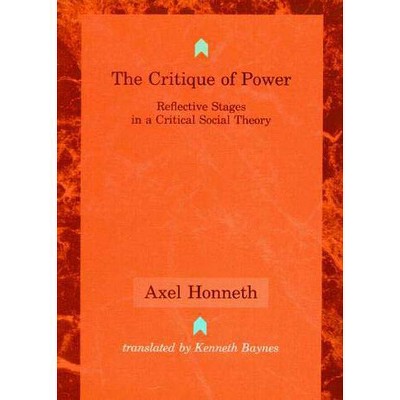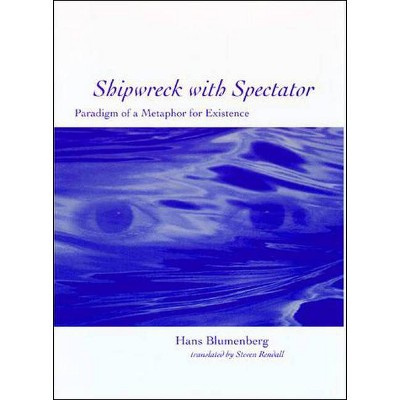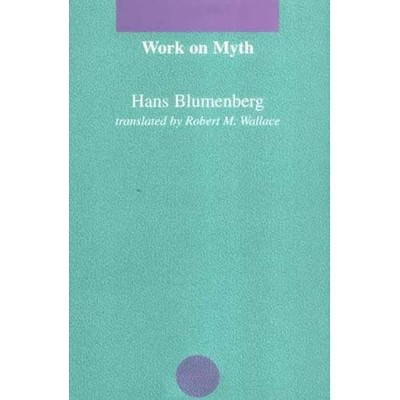The Principle of Hope, Volume 3 - (Studies in Contemporary German Social Thought) by Ernst Bloch (Paperback)

Similar Products
Products of same category from the store
AllProduct info
<p/><br></br><p><b> Book Synopsis </b></p></br></br><i>The Principle of Hope</i> is one of the great works of the human spirit. It is a critical history of the utopian vision and a profound exploration of the possible reality of utopia. Even as the world has rejected the doctrine on which Bloch sought to base his utopia, his work still challenges us to think more insightfully about our own visions of a better world.<p><i>The Principle of Hope</i> is published in three volumes: Volume 1 lays the foundations of the philosophy of process and introduces the idea of the Not-Yet-Conscious--the anticipatory element that Bloch sees as central to human thought. It also contains a remarkable account of the aesthetic interpretations of utopian wishful images in fairy tales, popular fiction, travel, theater, dance, and the cinema. Volume 2 presents the outlines of a better world. It examines the utopian systems that progressive thinkers have developed in the fields of medicine, painting, opera, poetry, and ultimately, philosophy. It is nothing less than an encyclopedic account of utopian thought from the Greeks to the present. Volume 3 offers a prescription for ways in which humans can reach their proper homeland, where social justice is coupled with an openness to change and to the future.</p><p/><br></br><p><b> From the Back Cover </b></p></br></br>This book is one of the great works of the human spirit. It is a critical history of the utopian vision and a profound exploration of the possible reality of utopia. Even as the world has rejected the doctrine on which Bloch sought to base his utopia, his work still challenges us to think more insightfully about or own visions of a better world.<p/><br></br><p><b> Review Quotes </b></p></br></br><br>""The Principle of Hope" is one of those all-about-everything books characteristic of German culture during the last 150 years. But unlike its direct predecessor, Oswald Spengler's "The Decline of the West", Bloch's magnum opus. . . reverses Spengler's world-historical scheme by turning "Weltangst" . . . into hope.' In this placing of hope' at the center of a history, an anthropology, and a phenomenology of mankind lies the originality of Bloch's undertaking."--J. P. Stern, The New Republic<br><br>"Ernst Bloch's "Principle of Hope" is one of the key books of our century. Part philosophic speculation, part political treatise, part lyric vision, it is exercising a deepening influence on thought and on literature. . . . No political or theological appropriations of Bloch's leviathan can exhaust its visionary breadth."--George Steiner<br><br>"<br><br>"Ernst Bloch's<br><br>" Ernst Bloch's Principle of Hope is one of the key books of our century. Part philosophic speculation, part political treatise, part lyric vision, it is exercising a deepening influence on thought and on literature. . . . No political or theological appropriations of Bloch's leviathan can exhaust its visionary breadth." -- George Steiner<br><br>" The Principle of Hope is one of those all-about-everything books characteristic of German culture during the last 150 years. But unlike its direct predecessor, Oswald Spengler's The Decline of the West, Bloch's magnum opus. . . reverses Spengler's world-historical scheme by turning Weltangst . . . into hope.' In this placing of hope' at the center of a history, an anthropology, and a phenomenology of mankind lies the originality of Bloch's undertaking." -- J. P. Stern, The New Republic<br><br>" "The Principle of Hope" is one of those all-about-everything books characteristic of German culture during the last 150 years. But unlike its direct predecessor, Oswald Spengler's "The Decline of the West," Bloch's magnum opus. . . reverses Spengler's world-historical scheme by turning "Weltangst" . . . into hope.' In this placing of hope' at the center of a history, an anthropology, and a phenomenology of mankind lies the originality of Bloch's undertaking." -- J. P. Stern, The New Republic<br><br>" Ernst Bloch's "Principle of Hope" is one of the key books of our century. Part philosophic speculation, part political treatise, part lyric vision, it is exercising a deepening influence on thought and on literature. . . . No political or theological appropriations of Bloch's leviathan can exhaust its visionary breadth." -- George Steiner<br>
Price History
Price Archive shows prices from various stores, lets you see history and find the cheapest. There is no actual sale on the website. For all support, inquiry and suggestion messagescommunication@pricearchive.us


















